-
 Bitcoin
Bitcoin $117500
2.15% -
 Ethereum
Ethereum $3911
6.19% -
 XRP
XRP $3.316
10.79% -
 Tether USDt
Tether USDt $1.000
0.01% -
 BNB
BNB $787.2
2.24% -
 Solana
Solana $175.2
4.15% -
 USDC
USDC $0.9999
0.00% -
 Dogecoin
Dogecoin $0.2225
8.40% -
 TRON
TRON $0.3383
0.28% -
 Cardano
Cardano $0.7868
6.02% -
 Stellar
Stellar $0.4382
9.34% -
 Hyperliquid
Hyperliquid $40.92
7.56% -
 Sui
Sui $3.764
7.63% -
 Chainlink
Chainlink $18.48
10.66% -
 Bitcoin Cash
Bitcoin Cash $582.1
1.88% -
 Hedera
Hedera $0.2601
6.30% -
 Avalanche
Avalanche $23.33
4.94% -
 Ethena USDe
Ethena USDe $1.001
0.02% -
 Litecoin
Litecoin $122.3
2.04% -
 UNUS SED LEO
UNUS SED LEO $8.969
-0.27% -
 Toncoin
Toncoin $3.339
0.86% -
 Shiba Inu
Shiba Inu $0.00001287
4.30% -
 Uniswap
Uniswap $10.43
7.38% -
 Polkadot
Polkadot $3.861
5.08% -
 Dai
Dai $1.000
0.02% -
 Bitget Token
Bitget Token $4.513
3.41% -
 Monero
Monero $267.7
-6.18% -
 Cronos
Cronos $0.1499
4.14% -
 Pepe
Pepe $0.00001110
5.15% -
 Aave
Aave $284.9
8.28%
What is "Zero Knowledge Proof (ZKP)" in cryptocurrency?
ZKPs enhance crypto privacy by proving transaction details without revealing them, using methods like zk-SNARKs and zk-STARKs, also aiding scalability and decentralized identity.
Mar 29, 2025 at 08:14 pm
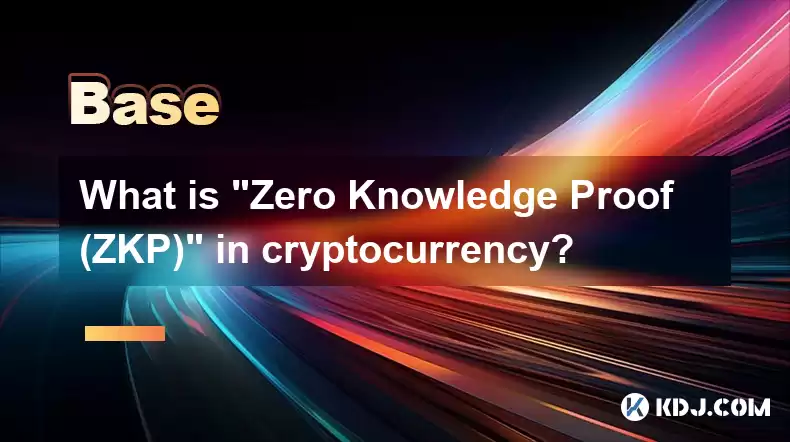
Understanding Zero-Knowledge Proofs (ZKPs) in Cryptocurrencies
Zero-Knowledge Proof (ZKP) is a cryptographic method allowing one party (the prover) to prove to another party (the verifier) that a statement is true without revealing any information beyond the truth of the statement itself. In the cryptocurrency context, this translates to proving ownership or participation in a transaction without exposing sensitive data like private keys or transaction details. This enhances privacy and security significantly.
How ZKPs Work: A Simplified Explanation
Imagine you want to prove you know the solution to a complex puzzle without revealing the solution itself. A ZKP allows you to do this. The prover performs a series of computations that convince the verifier of their knowledge without divulging the actual solution. This is achieved through cryptographic techniques involving mathematical challenges and responses. The verifier can be certain of the prover's knowledge based on the successful completion of these interactions, even without knowing the solution itself.
ZKPs and Privacy in Cryptocurrencies
The primary application of ZKPs in cryptocurrencies is enhancing privacy. Traditional blockchain transactions are transparent, revealing the sender, receiver, and transaction amount. ZKPs allow for transactions to be verified without exposing this sensitive information. This is crucial for maintaining user anonymity and protecting against surveillance and tracking. For example, Zcash utilizes ZKPs to shield transaction details.
Types of Zero-Knowledge Proofs
Several types of ZKPs exist, each with its own strengths and weaknesses. These include:
zk-SNARKs (Zero-Knowledge Succinct Non-Interactive Arguments of Knowledge): These are highly efficient and widely used, but their setup requires a trusted ceremony, raising concerns about potential vulnerabilities.
zk-STARKs (Zero-Knowledge Scalable Transparent Arguments of Knowledge): These don't require a trusted setup, making them more secure, but they can be computationally more expensive.
Bulletproofs: These offer a balance between efficiency and transparency, requiring less computation than zk-STARKs but still maintaining a high level of security.
The Role of ZKPs in Scalability
Beyond privacy, ZKPs also play a crucial role in improving cryptocurrency scalability. By allowing for verification of large amounts of data without processing the entire dataset, ZKPs can significantly reduce the computational load on the network. This is particularly important for blockchains struggling with transaction throughput.
ZKPs and Decentralized Identity
ZKPs are also essential for developing decentralized identity systems. Users can prove their identity without revealing their personal information. This empowers users with greater control over their data and privacy, while still allowing for secure authentication and authorization.
Implementing ZKPs: A Technical Overview
Implementing ZKPs requires advanced cryptographic knowledge and expertise. The process typically involves:
Defining the statement to be proven: This needs to be formalized mathematically.
Choosing a suitable ZKP scheme: The choice depends on factors like security requirements, efficiency, and the specific application.
Generating the proof: This involves complex cryptographic computations performed by the prover.
Verifying the proof: The verifier uses a separate algorithm to check the validity of the proof without learning anything beyond the truth of the statement.
Challenges and Limitations of ZKPs
While powerful, ZKPs are not without limitations. The complexity of implementation can be a significant hurdle, and some schemes require a trusted setup, potentially introducing vulnerabilities. Furthermore, the computational cost of generating and verifying proofs can be substantial, depending on the chosen scheme.
ZKPs and the Future of Cryptocurrencies
ZKPs are a rapidly developing area of research and development in the cryptocurrency space. As technology advances, we can expect to see even more efficient and secure ZKP implementations, further enhancing the privacy, scalability, and security of cryptocurrencies and blockchain applications. Their role in fostering trust and user control over personal data will likely become increasingly important.
ZKPs and Smart Contracts
ZKPs are being integrated into smart contracts to enhance privacy and security. For example, they can be used to verify the execution of a smart contract without revealing the inputs and outputs of the contract. This allows for the creation of more private and secure decentralized applications (dApps).
ZKPs and NFTs
ZKPs are also finding applications in the non-fungible token (NFT) space. They can be used to verify the authenticity and ownership of NFTs without revealing the underlying data of the NFT. This allows for the creation of more private and secure NFT marketplaces.
Frequently Asked Questions
Q: Are ZKPs truly secure?
A: The security of a ZKP depends heavily on the underlying cryptographic assumptions and the specific implementation. While many ZKP schemes are considered highly secure, vulnerabilities can exist, particularly in poorly implemented systems or those requiring a trusted setup.
Q: How do ZKPs differ from other privacy-enhancing technologies?
A: Other technologies like mixing services and ring signatures offer privacy but often at the cost of efficiency or complete anonymity. ZKPs provide a unique balance, offering strong privacy guarantees without sacrificing the efficiency or transparency of the underlying blockchain.
Q: What are the future applications of ZKPs?
A: Beyond cryptocurrencies, ZKPs have potential applications in various fields, including voting systems, supply chain management, and digital identity verification, anywhere privacy and security are paramount.
Q: Are ZKPs computationally expensive?
A: The computational cost varies depending on the specific ZKP scheme. Some, like zk-SNARKs, are highly efficient, while others, like zk-STARKs, can be more computationally intensive. Ongoing research aims to improve the efficiency of ZKP schemes.
Q: What is a trusted setup in the context of ZKPs?
A: A trusted setup is a process required by some ZKP schemes, like zk-SNARKs, to generate cryptographic parameters. The security of the system relies on the integrity of this setup, and any compromise during this process can compromise the entire system. zk-STARKs are designed to avoid this requirement.
Disclaimer:info@kdj.com
The information provided is not trading advice. kdj.com does not assume any responsibility for any investments made based on the information provided in this article. Cryptocurrencies are highly volatile and it is highly recommended that you invest with caution after thorough research!
If you believe that the content used on this website infringes your copyright, please contact us immediately (info@kdj.com) and we will delete it promptly.
- Tron's Sell-Off Spurs Altcoin Shift: What's Next for TRX?
- 2025-08-08 08:30:12
- RUVI Presale: Is the Growth Potential Real?
- 2025-08-08 09:10:12
- Sleep Token's US Takeover: Thornhill Rides the 'Even In Arcadia' Wave
- 2025-08-08 08:30:12
- FTT Token's Wild Ride: Creditor Repayments vs. Market Drop - A New Yorker's Take
- 2025-08-08 07:10:12
- Floki Crypto Price Prediction: Riding the Robinhood Rocket or Just a Meme?
- 2025-08-08 07:15:12
- EigenLayer, Restaking, and Ethereum: Navigating the Hype and the Hazards
- 2025-08-08 06:30:12
Related knowledge
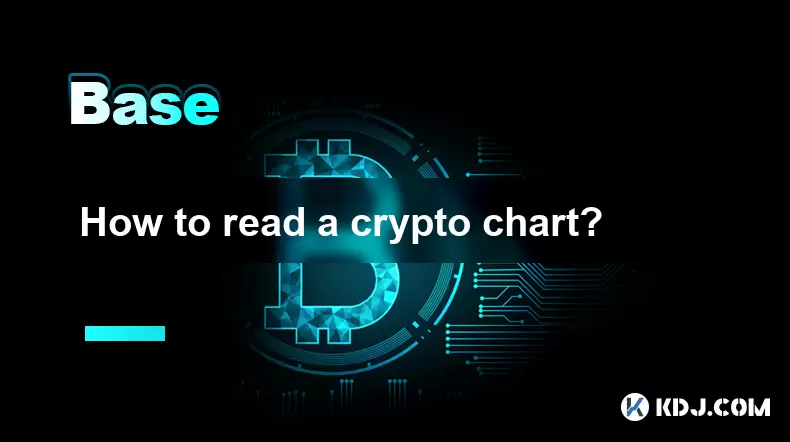
How to read a crypto chart?
Aug 08,2025 at 10:35am
Understanding the Basics of a Crypto ChartA crypto chart is a visual representation of the price movements of a cryptocurrency over time. These charts...
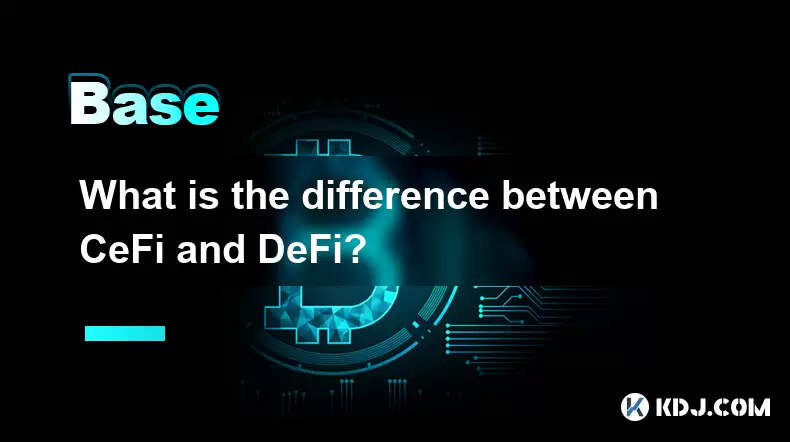
What is the difference between CeFi and DeFi?
Jul 22,2025 at 12:28am
Understanding CeFi and DeFiIn the world of cryptocurrency, CeFi (Centralized Finance) and DeFi (Decentralized Finance) represent two distinct financia...
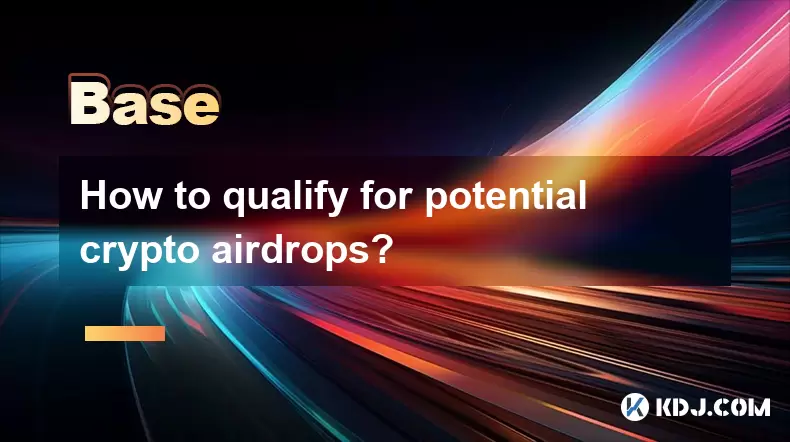
How to qualify for potential crypto airdrops?
Jul 23,2025 at 06:49am
Understanding What Crypto Airdrops AreCrypto airdrops refer to the distribution of free tokens or coins to a large number of wallet addresses, often u...
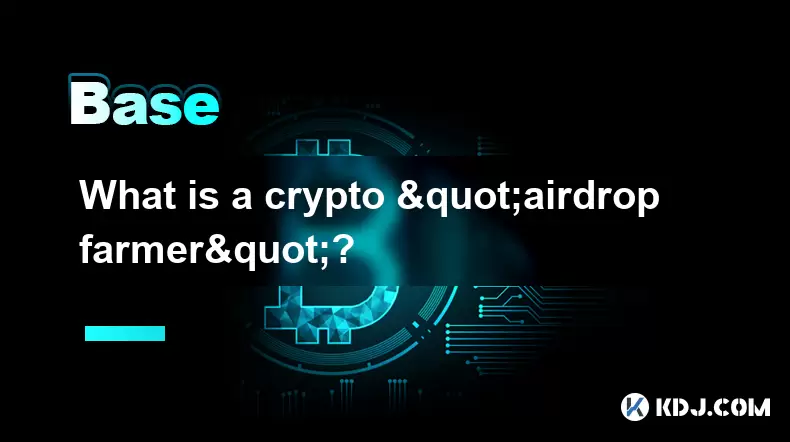
What is a crypto "airdrop farmer"?
Jul 24,2025 at 10:22pm
Understanding the Role of a Crypto 'Airdrop Farmer'A crypto 'airdrop farmer' refers to an individual who actively participates in cryptocurrency airdr...
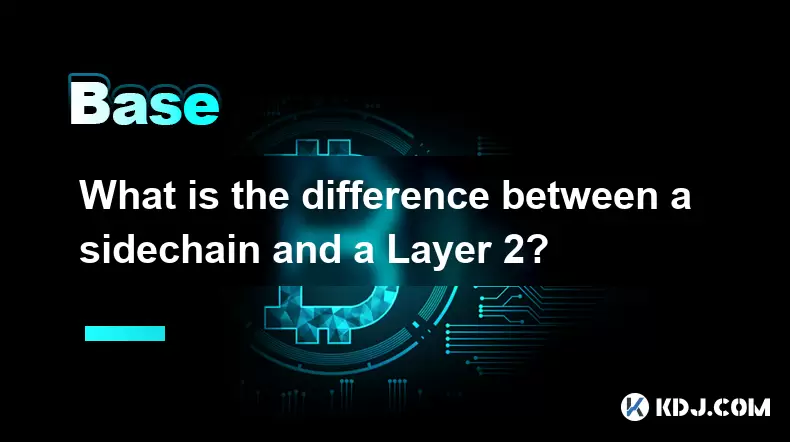
What is the difference between a sidechain and a Layer 2?
Jul 20,2025 at 11:35pm
Understanding the Concept of SidechainsA sidechain is a separate blockchain that runs parallel to the main blockchain, typically the mainnet of a cryp...
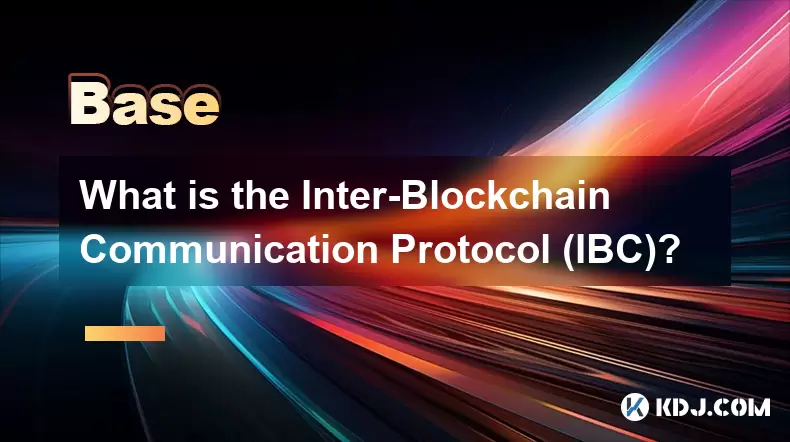
What is the Inter-Blockchain Communication Protocol (IBC)?
Jul 19,2025 at 10:43am
Understanding the Inter-Blockchain Communication Protocol (IBC)The Inter-Blockchain Communication Protocol (IBC) is a cross-chain communication protoc...

How to read a crypto chart?
Aug 08,2025 at 10:35am
Understanding the Basics of a Crypto ChartA crypto chart is a visual representation of the price movements of a cryptocurrency over time. These charts...

What is the difference between CeFi and DeFi?
Jul 22,2025 at 12:28am
Understanding CeFi and DeFiIn the world of cryptocurrency, CeFi (Centralized Finance) and DeFi (Decentralized Finance) represent two distinct financia...

How to qualify for potential crypto airdrops?
Jul 23,2025 at 06:49am
Understanding What Crypto Airdrops AreCrypto airdrops refer to the distribution of free tokens or coins to a large number of wallet addresses, often u...

What is a crypto "airdrop farmer"?
Jul 24,2025 at 10:22pm
Understanding the Role of a Crypto 'Airdrop Farmer'A crypto 'airdrop farmer' refers to an individual who actively participates in cryptocurrency airdr...

What is the difference between a sidechain and a Layer 2?
Jul 20,2025 at 11:35pm
Understanding the Concept of SidechainsA sidechain is a separate blockchain that runs parallel to the main blockchain, typically the mainnet of a cryp...

What is the Inter-Blockchain Communication Protocol (IBC)?
Jul 19,2025 at 10:43am
Understanding the Inter-Blockchain Communication Protocol (IBC)The Inter-Blockchain Communication Protocol (IBC) is a cross-chain communication protoc...
See all articles

























































































